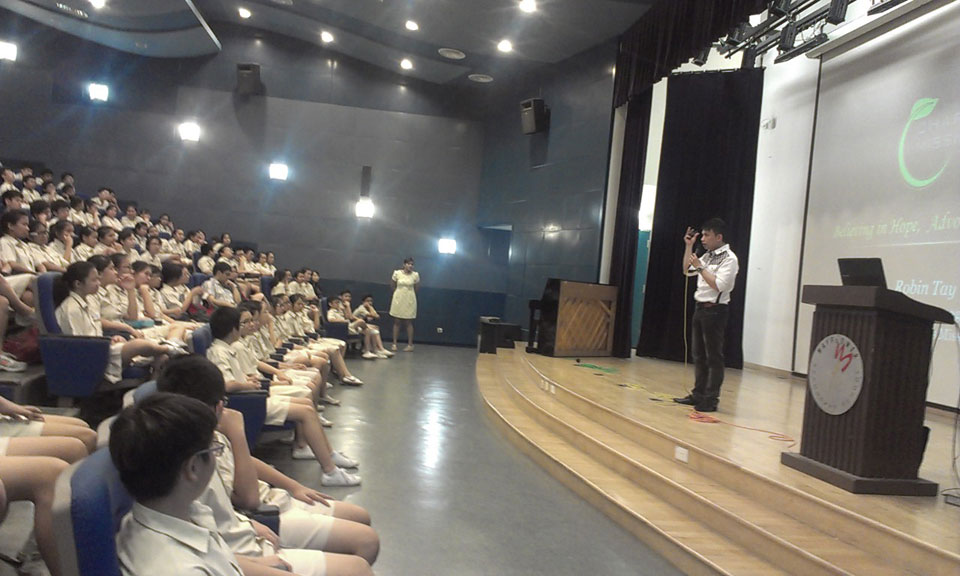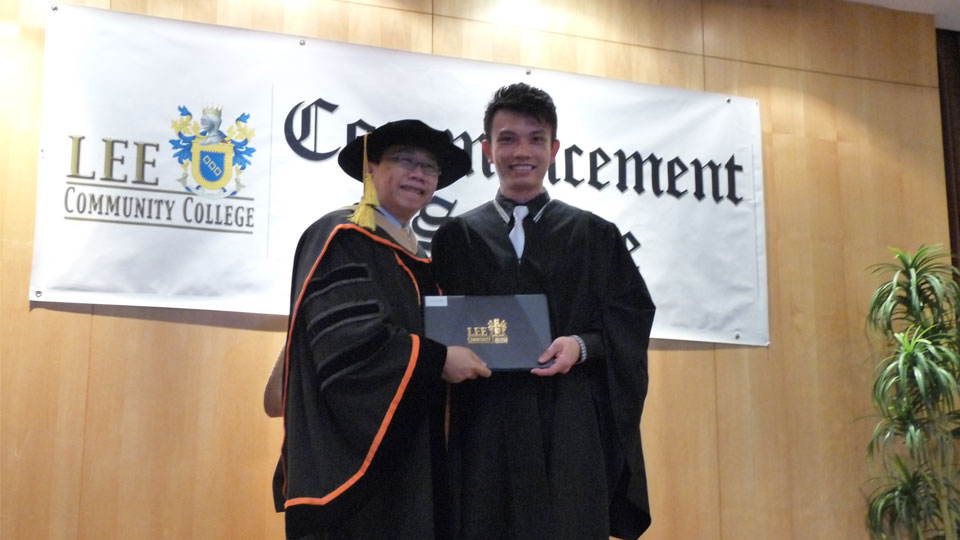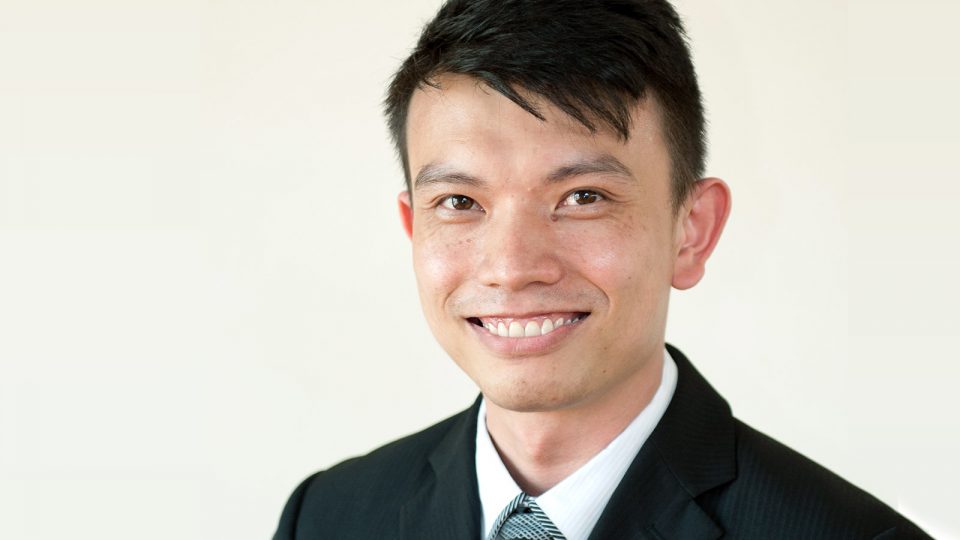If you recall history lessons, you may remember the philosopher George Santayana. This wise Spaniard, born in 1863, became one of the most prophetic thinkers of his era, and the advice he dispensed hundreds of years ago still applies: “Those who cannot remember the past are condemned to repeat it.”
Keep that in mind as you read about Robin Tay Kok Pin. The current programmes manager of Singapore’s The New Charis Mission (TNCM) is living proof that Santayana’s quote is more about future hope than it is about the past!
RS: How did you first learn about The New Charis Mission?
Robin: I was serving a prison sentence when the Mission’s Executive Director, Pastor Don Wong, visited to conduct weekly counselling sessions. I wound up in one of them and that’s how TNCM came into my life.
RS: You make no secret about your difficult past and the dramatic changes that set you on a better path, but what gave you the courage to share your story with the world?
Robin: I had to learn not to be ashamed about what I had done in the past. I had to get it out in the open. As I wrote a new chapter of my life, I felt compelled to help others who also got bad starts in life.
Each time I share details about how I made the journey into a better life, I offer others a message of hope, telling the world that ex-offenders can be huge, positive contributors to society.
RS: How and why did you choose to become a TNCM counsellor?
Robin: Once a person comes out of the shadows and into the light as I did, I believe that it’s human nature to want to share life-changing experiences with others. I plan to continue to set a good example and live a life of giving that benefits others. This work is more than a job or career to me; it’s a mandate, a purpose and a dream come true.
RS: What do you do as a TNCM counsellor?
Robin: I mentor the residents, conduct counselling sessions and offer training. I’m also the programmes manager at TNCM, which means that now I’m the person who goes into prisons to conduct counselling sessions, facilitate structured mentoring for those who renounce gang affiliations and do anything necessary to help inmates turn their lives around. I’m particularly focused on working with at-risk youngsters and students.

RS: What story has touched you most since becoming a TNCM counsellor?
Robin: I have witnessed many people over the years who have been successfully been rehabilitated and reconciled with families, but I won’t soon forget one father who was serving a 14-year sentence for manslaughter. At the time of his conviction, his son was just a year old, and his wife divorced him.
After his release, his tried to make contact with his son, but the boy refused to have anything to do with him. Despite being rejected over and over again, he continued to write letters to his son and remained determined to reconcile with him.
RS: Was he able to reconnect?
Robin: That’s why this case is so unforgettable! He refused to stop trying. We invited his son to a TNCM New Year’s celebration. He came and was in the audience when his father mustered his courage, in front of 100 or more people, to apologize to his son for not being a responsible father and for making so many mistakes. When he finished speaking, the two of them hugged and cried. We did, too. Since that day, his son has become his best friend.
RS: That story is inspiring. What formula do you use to tap the goodness that’s part of everyone’s nature?
Robin: There is no formula. Everyone has different perspectives and make choices based on them. But, since it’s never too late to change and make things right, it requires courage, because if it’s to be a successful transformation, there’s no turning back.
Think of a caterpillar struggling to get out of its cocoon so it can emerge as a butterfly. As a butterfly, the insect is reborn and has a different frame of reference. He sees the world differently and deals with adversity in new ways — as a butterfly; not as a caterpillar.
RS: What sort of difficulties do high-risk people and past offenders face in Singapore society?
Robin: Society tends to make judgments based on past behaviours and the stigma of having been in gangs and served time in prison makes it particularly hard for people who have reformed to be viewed as changed people. Too often, we label others simply because it’s easier to judge than to take time to find out what led someone down the wrong path.
At the Mission, we work hard every day to change that, which is why I’m so thrilled that there’s a race coming up to call attention to this issue.

RS: Will you be taking part in the Unlabelled Run?
Robin: Sure; I will be there!
RS: Do you believe that events like the Unlabelled Run inspire hope and advocate change?
Robin: Yes, I do. I like to say that “A place of agreement is a place of power”! When everyone does his or her part at this type of running event, it sends a strong message to the community that ex-offenders contribute to society, too!
After all, when we help individuals, we help families. When we impact families, we help the community. In the end, we build a strong nation — a nation that can find room for ex-offenders to play important roles.
RS: Are there other ways The New Charis Mission supports the Singapore community?
Robin: In addition to working with ex-offenders as they transition back into society, we also have an outreach program that focuses on the elderly in AMK and Chai Chee. It’s been successfully run for five years. We take seniors on outings, celebrating different festive seasons and ethnic holidays. We also help refurbish homes for them; TNCM is proud to have refurbished almost 100 homes.
TNCM also reaches out to the youth at risk and at risk students. In the prison, TNCM sends in counsellors to conduct weekly counselling and also structured mentoring programmes for those who renounced their gangs. Helping them to lead lives anew and also to equip them with life skills to face challenges ahead upon their release.
Bottom line is that our prison ministries are at the heart of our mission, but our outreach is expansive. I’m living proof of that!
Do you believe that people can be rehabilitated, no matter how serious their past offense may be? If you know of someone who turned into a butterfly, please share their story with us.




